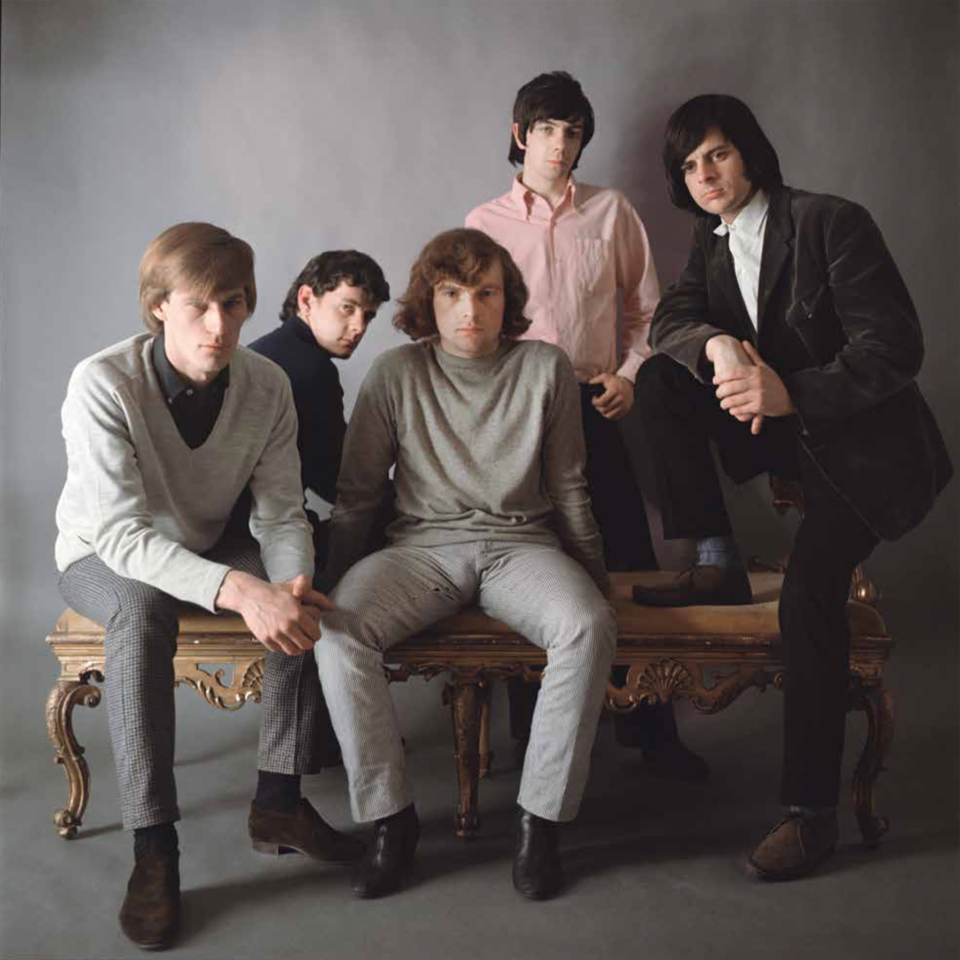Decca Records in 1964: The Rolling Stones, Van Morrison, Tom Jones and the British pop explosion
To celebrate 90 years of Decca Records, a new book about the label's history is being released. In this exclusive extract, renowned music critic Jon Savage looks at the boom of British pop in 1964

Your support helps us to tell the story
From reproductive rights to climate change to Big Tech, The Independent is on the ground when the story is developing. Whether it's investigating the financials of Elon Musk's pro-Trump PAC or producing our latest documentary, 'The A Word', which shines a light on the American women fighting for reproductive rights, we know how important it is to parse out the facts from the messaging.
At such a critical moment in US history, we need reporters on the ground. Your donation allows us to keep sending journalists to speak to both sides of the story.
The Independent is trusted by Americans across the entire political spectrum. And unlike many other quality news outlets, we choose not to lock Americans out of our reporting and analysis with paywalls. We believe quality journalism should be available to everyone, paid for by those who can afford it.
Your support makes all the difference.From being a static imitation of America, the British pop scene became a hyper-speed generator of fashions, ideas and music. All record companies such as Decca could do was to adapt to the change in the weather, releasing dozens of records by new groups and artists in the hope of catching the lightning. In the early months of 1964 most of the pre-1963 artists faded away, and in their place came new signings, including Rod Stewart, Joe Cocker, Graham Bond, the Snobs, Lulu and the Luvvers, and the Welshman Tom Jones. Some had hits; most made good records.
Among the more interesting were the Poets, a Scottish group whose long hair, Burns-style ruffles and plaintive, minor-key sound belied their tough upbringings in Glasgow. “Now We’re Thru’’ made the Top Thirty in late autumn 1964 and remains one of the oddest records in that fertile year. The Nashville Teens hit big with a truly exciting version of John Loudermilk’s “Tobacco Road” and then struggled to reproduce that impact. A similar fate befell the Zombies, whose “She’s Not There” was a brilliant mix of jazz, R&B and Colin Blunstone’s distinctive, breathy voice.
R&B was in fashion with the Thyrds (”Hide and Seek”), the Bo Street Runners (”Bo Street Runner”) and the Birds (”You’re on My Mind”). Decca’s most substantial signing in this genre was Them, from Belfast, fronted by Van Morrison. In 1964, television shows such as Ready Steady Go! seemed full of tough young men from around the British Isles, most notably the Animals and the Kinks, singing tough R&B tunes. Them were the toughest. They wouldn’t break through until 1965, but November 1964 saw the release of their signature tune, “Gloria”.
If 1963 had been the year of the Beatles, then in 1964 they shared that honour with the Rolling Stones as Merseybeat shaded into R&B. The rise had been rapid: a version of ‘Not Fade Away’ went Top Three in early spring, followed by two Number 1s: “It’s All Over Now” and the pure slide blues, “Little Red Rooster”. In May, the first Rolling Stones album knocked With the Beatles off the top spot, staying there for nearly three months and remaining in the LP charts for one week short of a year.

Ably presented by Andrew Loog Oldham as the antithesis to the Beatles, the Rolling Stones quickly gained a cultural importance that rivalled Britain’s pop culture leaders. If the Beatles were still, in 1964, clean- cut, professional and showbiz-friendly, the Stones would be cast as violent, bohemian and disrespectful – a perfect teenage storm that made them loved and hated in equal measure. The comparison, of course, flattered the Stones, who sold quite considerably fewer records than the Beatles, but they would grow into the role.
The deal that the Stones had with Decca was a tape lease; i.e. the production would be done out of house, always by Oldham, which meant that the group was not obliged to use Decca studios. Their first LP was recorded at London’s Regent Sound, but in June they made their way to the famed Chess studios in Chicago, where they taped the Number 1 hit ‘It’s All Over Now’, the hit EP Five by Five and the bulk of their second album. In November, they travelled to RCA studios to work with engineer Dave Hassinger – the start of a long and fruitful partnership.
Encouraged by the Stones’ success, Oldham was minded to emulate his idol Phil Spector in becoming a producer/auteur. Starting in mid 1964 he began making a sequence of records with other artists, the most important of whom was Marianne Faithfull, whose version of the early Jagger–Richards song “As Tears Go By” reached the Top Ten in the late summer. “Posh birds” were making records in 1964, but Faithfull was more serious and much artier than, say, Twinkle, whose Decca death disc “Terry” went Top Five late in the year, despite a BBC ban.
The first four months of 1965 saw five Decca records at Number 1: “Go Now” by the Moody Blues; “You’ve Lost That Lovin’ Feelin’’ by the Righteous Brothers (a Phil Spector production on the London label); “It’s Not Unusual” by Tom Jones; “The Last Time” by the Rolling Stones and “Concrete and Clay” by Unit Four Plus Two. Both the Moody Blues and Unit Four Plus Two failed to follow up this success during 1965 and 1966, which prompted thoughts about Decca’s career-building abilities.

Apart from the Rolling Stones, the only singles act to persevere and prosper on the label over the next few years was Tom Jones, a star with more traditional virtues – a good voice, a masculine appearance, the ability to cross over to television and variety. The label also did spectacular business with the Bachelors during 1964 – five Top Ten hits including a Number 1, the 1927 song “Diane” – and launched the Irish crooner Val Doonican as a pop star in the autumn with the Number 3 hit “Walk Tall”.
Decca – The Supreme Record Company: The Story Of Decca Records 1929 – 2019 book is released on 4 July.
Join our commenting forum
Join thought-provoking conversations, follow other Independent readers and see their replies
Comments